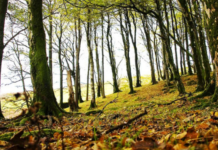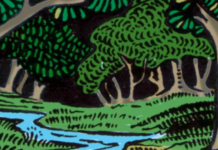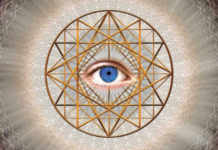
 Becoming Nature: Learning the Language of Wild Animals and Plants, by Tamarack Song
Becoming Nature: Learning the Language of Wild Animals and Plants, by Tamarack Song
Bear and Company, 9781591432111, 292 pp. (incl. appendix, bibliography, glossary, index and notes), 2016
Becoming Nature: Learning the Language of Wild Animals and Plants is a well-intentioned book designed to help people transition from being observers of nature to feeling like they are a part of it. This is a very worthy aim and certainly something we need more of. Unfortunately, I’m not at all convinced that most people could read this book and go easily from the practices recommended to possessing the skill set the author claims to have, which is supposed to be what the book would enable you to do.
I picked up Becoming Nature to review because the idea of how we become indigenous people to our landscapes has been on my mind for some time. I’m in a position of reliably hearing, seeing and getting quite close to wildlife, so I was interested to learn more. I recognize a lot of the early work offered in the book — learning something of where to go when outdoors and how to pay attention — as being things I’ve done. I’m unlikely to be able to get further in the way the author describes, in part because I don’t have the physical skills or a body to develop them, and this is a big part of what makes the book so frustrating.
The author assumes a lot of things about the reader — that the reader is able bodied, mobile, and has the time and resources to be out and about on the author’s terms. As someone with an only slightly awkward body, I found this difficult, while a more limited person would find it even harder to work with the material. Because the reader is assumed to be able bodied, very few alternatives or work-arounds are offered for activities. For example, a way of walking with one foot in front of the other is encouraged as a way of moving about in woods. If anything impairs your balance, walking in this way over uneven terrain would increase the risk of a fall or ankle injury, or may prove impossible. Most of us find it easier to move quietly when balanced, and that means feet at about shoulder width — which the author refers to dismissively as “waddling.”
Health and lifestyle advice are dolled out with little consideration of disability, limitation or economic circumstances. The author attributes his good health to his lifestyle without really looking at the role privilege might have played in that. We can’t all follow his lead and get someone else to run our business while we spend a year in a cabin in the woods to recover from stress. Most of us have far fewer options.
The author spends the entire book assuming that anything true for him will be true for everyone — he asserts for example that rising with the dawn is the right and natural thing to do. Never mind all the studies that say teenage sleep patterns are very different, and never mind that the cycles of light in your part of the world are going to impact on this — these things aren’t mentioned. In a book about nature, talking about sleep with no mention of pre-industrial sleep patterns is a serious oversight.
There are about 20 pages devoted to canoeing — because it’s something the author does, but nothing really on fires, sleeping out, likely risks and challenges, or what to do if you get in close proximity with a wild animal and things go wrong. One issue that really summed this problem up for me, was the amount of page space devoted to talking about the impact of artificial human time on our relationship with nature. It’s a valid point. The author doesn’t wear a watch, and comments that you don’t need to — there’s a clock in the car, he points out. At no point does the author talk about the way in which car use impacts in the same way on our relationship with space. From the frequent references to car use, it’s obvious that the author drives.
For me, this is frequently a problem in both green and spiritual writing — we play up the things we do well, and skip over the things that we aren’t so good with. In this case, the issue is driving. How can you become at one with nature if you’ve driven a couple of hours to get to the “wilderness”? This seems an important question to me. Most modern humans are urban, and in seeking wild places and wild creatures, have to make a journey. Surely that journey has implications?
I was disappointed by the amount of page space given to the subject of Zen practice, and the attendant assertion that nature is all about living in the moment. The idea that relating to past and present is a human activity and wildlife is all “now” just does not make any sense to me. I think it serves to increase our sense of separation. A deciduous tree forms the buds for its future leaves during the winter.
Equally, the author keeps talking about things that are instinctive and intuitive, as though nature is just a felt thing. Migrating swans teach their offspring the route, it takes more than a year for a young otter to learn everything it needs, and there are countless other examples. Nature is not all feeling and intuition — learning plays a role and I’m uneasy with how this has been represented. I think one of the reasons there’s not enough here to carry a person forward, if they try and follow the instructions in the book, is this assumption that if we open ourselves to our natural intuition, the rest will just happen. We can then tap into the wisdom of our hunter-gatherer ancestors, and never mind all of the human history between us and them. I’m not convinced. I think there’s more to learning about being in nature than the author presents.
I’m not sold on the idea of a big separation between culture and nature, either. If you look at any indigenous culture, what you find is song and storytelling, a creative relationship between the human and the landscape. Maps are passed down, song lines shared, stories convey wisdom about living in the land and dealing with its other inhabitants. The “natural” human is a storytelling creature, and to become nature, surely, should include this?
On the whole, Becoming Nature: Learning the Language of Wild Animals and Plants is not a book I can recommend. If you are fit and able bodied, and affluent enough to make any lifestyle choice you like, but also feel totally disconnected from the natural world, you could benefit from this book, but I think most Pagan readers won’t find it that useful.








